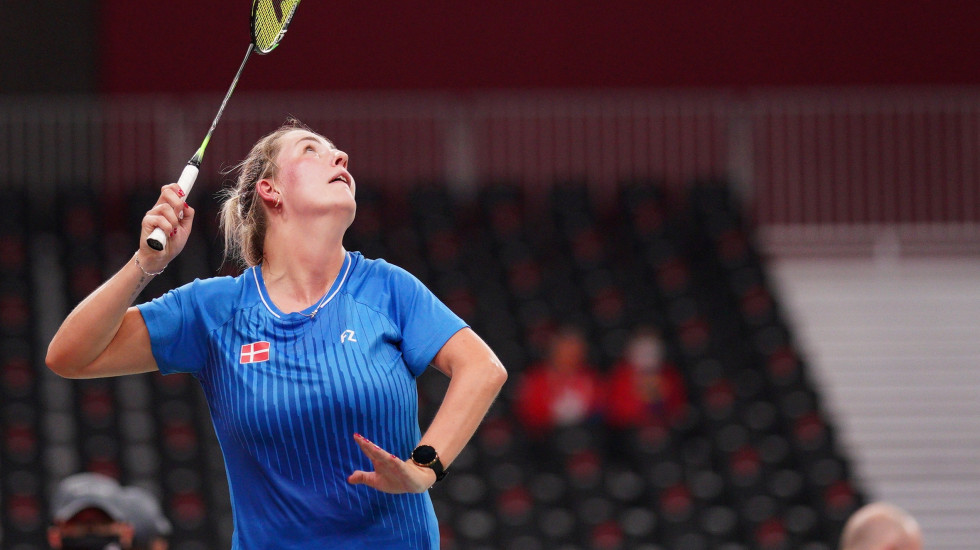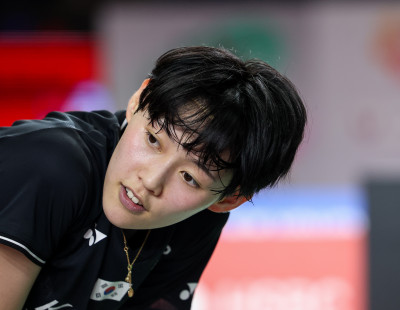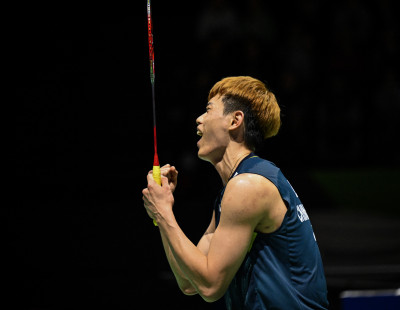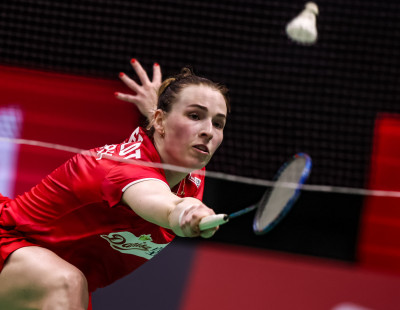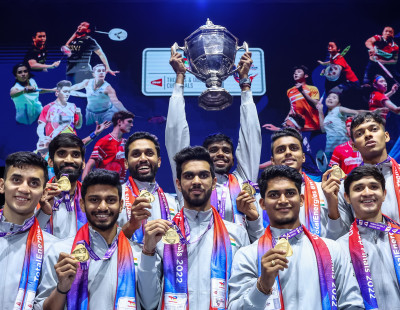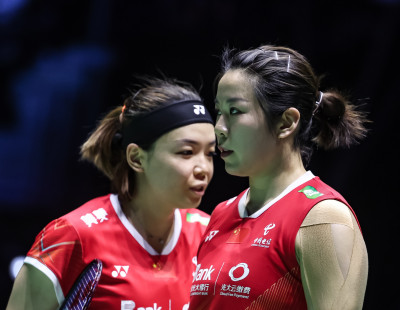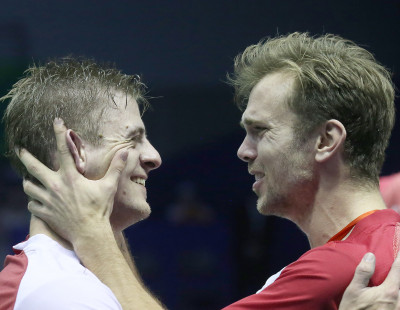The time since she returned from the Tokyo 2020 Paralympics has been eventful for Cathrine Rosengren.
Like many competitors who struggle to deal with the aftermath of a sporting pinnacle, and stung by her disappointment at having failed to win a medal, the Danish SU5 player hit a low – she didn’t touch a racket for two weeks.
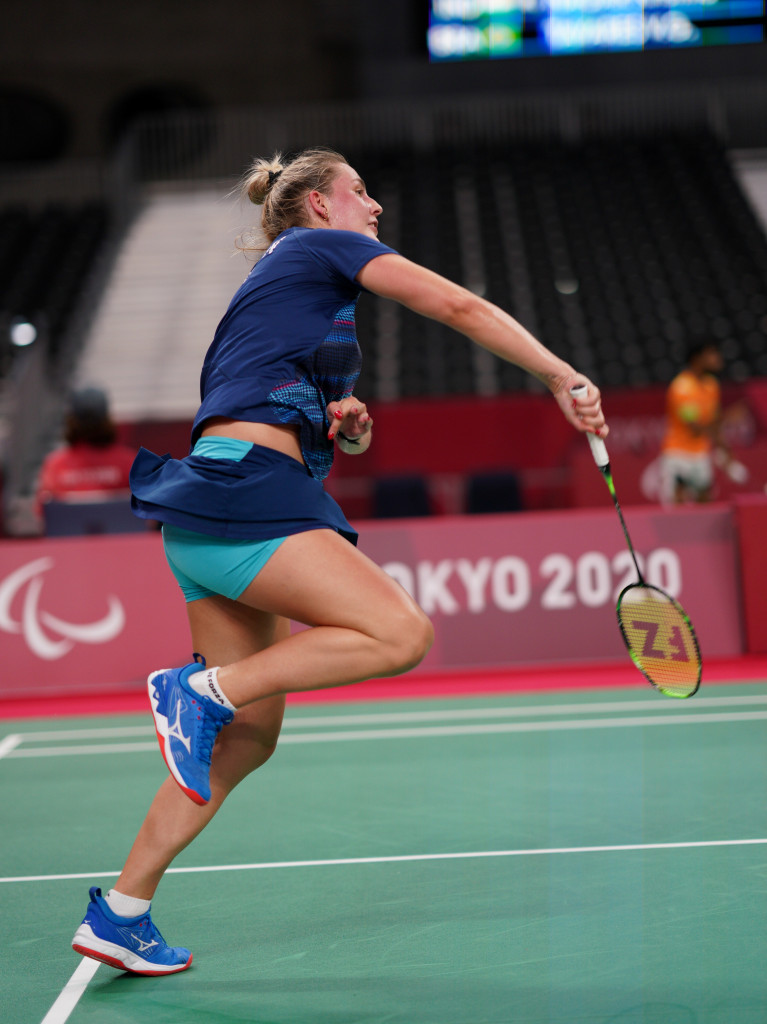
Cathrine Rosengren at the Tokyo 2020 Paralympics.
Since then, however, lured back by her love for the sport, Rosengren hit the courts again. There were other significant developments: supported by BWF, she enrolled for the Women in Leadership programme, conducted by the Swiss-based organisation Women Lead Sport in association with APSO (Association of Paralympic Summer Organisations), and stepped into new territory by doing TV commentary at the Danish national championships. Alongside, she has also been busy with her Bachelor’s degree in biochemistry, which she hopes to complete by early 2024.
“In the beginning I wasn’t sure if I wanted to attend this course,” says Rosengren, on the Women in Leadership programme that consisted of four sessions over January and February. “I felt like I’m not a leader, why should I do this? But when I started doing it, I could see that I can use a lot of things, workwise at university and at badminton.
“I never saw myself as someone who would go in front and do things, but now I feel like I want to. I nominated myself for the Para Athletes’ Commission. I would never normally go for stuff like that. I would normally go in the back and say my opinions to someone else but I really felt like this side of me who walks in the front and wants to do something. It’s a new side of me that I never really explored before.”
When the offer for TV commentary came from Badminton Denmark, Rosengren was able to use the leadership lessons she learned to quickly build her confidence in her maiden stint in front of the mic.
“It was fun. I had to get off my comfort zone in the beginning, I wasn’t sure what to say and how to say it. But I got more confident and I think it worked very well. I did it for two days. The second day was much better than the first day as I was more confident and I learned how to do and what to say.
“I had a (leadership) session in the morning, and in the evening I had to do commentary, and it improved my commentating. I tried to be more powerful, the way I speak. People could only hear my voice and couldn’t see me, so I felt I was sitting and talking to myself, then it would get low. Then I tried to do more powerful punchlines, which was some of the things I learnt in the course.
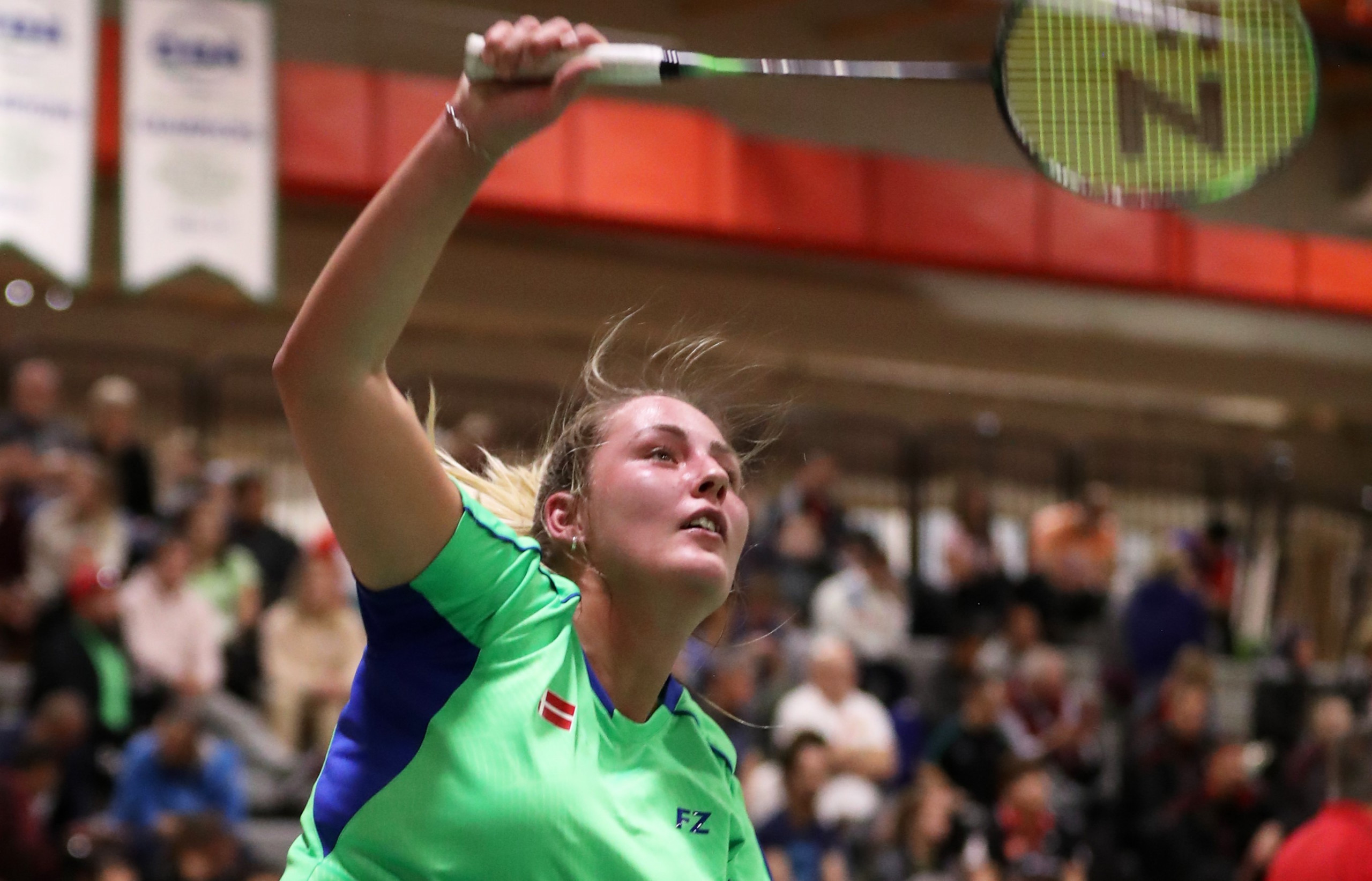
Catherine Rosengren of Denmark.
“I would like to take it (commentary) more seriously, maybe. I was asked if I wanted to do this at the junior nationals and I think I will go for it. It was fun and I also learned something about the game.”
Perhaps the most important takeaway from the Women in Leadership course was that it has helped her be less apologetic about seeking what she deserves, whether it’s sponsorship or better playing conditions.
“I think in the Para community it’s very hard to say we want this and need this. Sometimes people can be satisfied too early. In the beginning we played on wooden floors, but now we have the green floors… it’s important we continue this way.
“I just always thought there was someone who always was a leader. Now I get that everyone can be a leader if they train to do it, being the leader for the things I want in my life, make the situation as good as possible for me, right now, in what I want.”


















